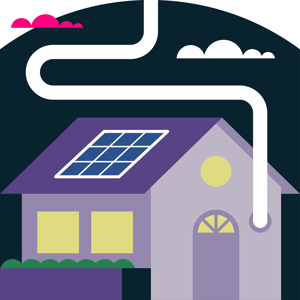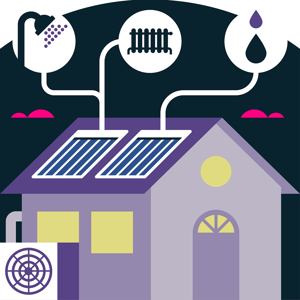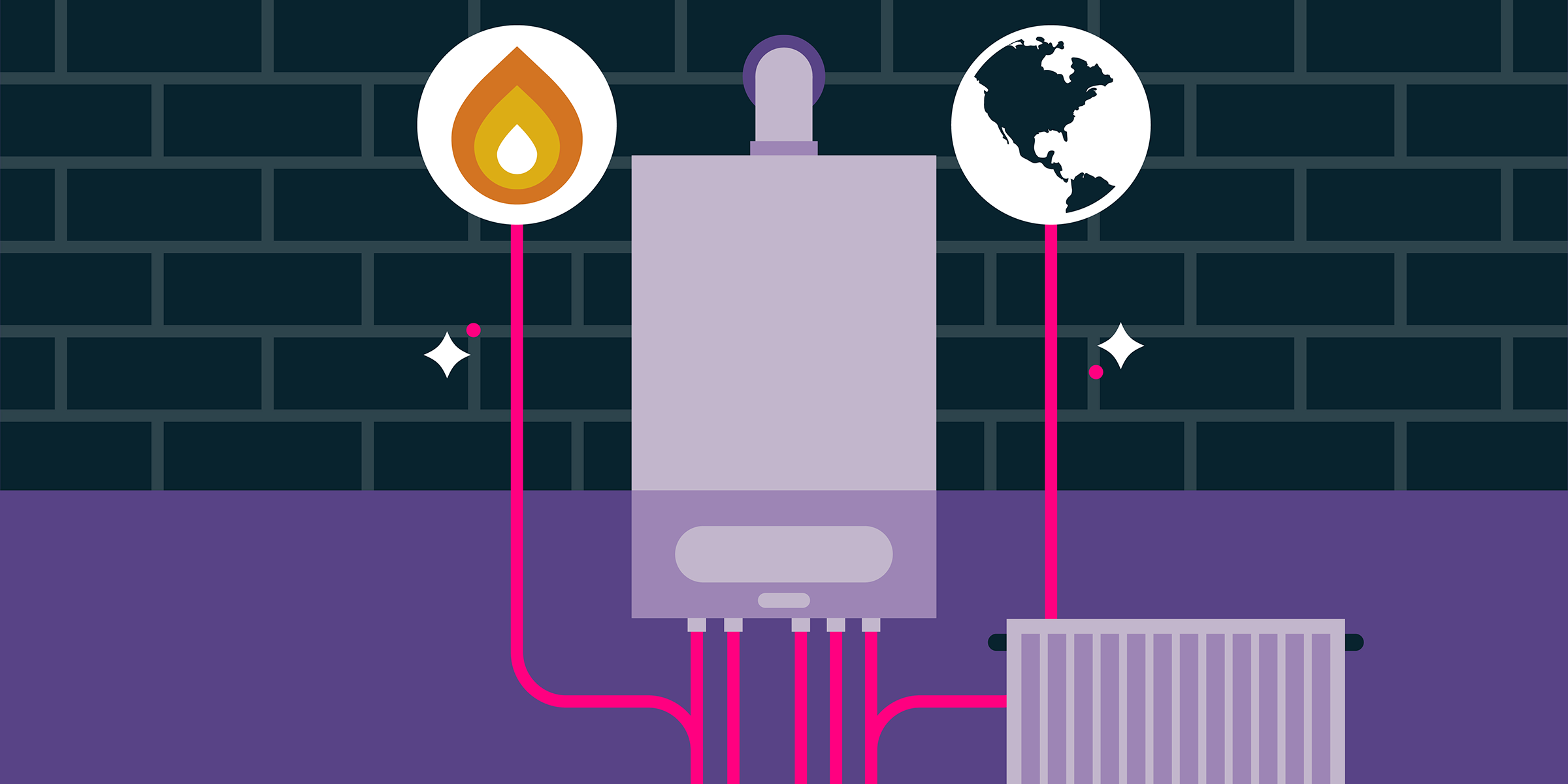Is Your Heating Powered by Gas? That's Going to Change
Everyone now realises that they need to cut back on plastic use, drive their car less and take fewer flights. But how many people are aware of the impact on the environment of their gas-powered central heating?
While its carbon dioxide emissions are smaller than coal or oil, natural gas - the stuff used to heat 24 million UK homes – is a fossil fuel. And if the UK is to meet its ‘net zero’ targets, this dependence on gas boilers will have to come to an end.
Wasted energy makes up 30% of the average energy bill - do something about it! Get more from your smart meter with Loop.
The Problem With Gas
Heating and hot water for buildings make up 40% of UK energy consumption and account for 20% of total greenhouse gas emissions.
While electricity is increasingly being produced from renewable sources, about 80% of heat demand is met by natural gas.
In fact, the number of homes connected to natural gas heating has risen in the past few decades, from 14 million in 1990 to 23.9 million.
Besides the environmental impact, gas is also limited by supply, which can be stretched to its limit in serious cold snaps.

Weening the UK Off Gas
Many people aren’t aware of the need to move away from natural gas heating and what the alternatives might be.
But how to decarbonise and electrify heating in UK buildings is seen as one of the greatest challenges for the UK’s energy policy. Achieving it is a key part of meeting the UK’s target to bring all greenhouse gas emissions to net zero by 2050.
The Committee on Climate Change (CCC) has said that from 2025 at the latest, no new homes should be connected to the gas grid. If the UK were to achieve this, it would follow in the footsteps of the Dutch Government, which last year introduced regulations preventing new homes connecting to the gas grid.
Heat Pumps
If homes aren’t connected to the gas grid, then alternative ways of keeping them warm will be needed.
Heat pumps, which make clever use of existing warmth in the air or ground, are expected to be a key part of this. In fact, in its Net Zero report, the CCC says there’ll need to be deployment of heat pumps “at scale” in the 2020s.
The two main types of home heat pumps are:
- Air source heat pumps (ASHPs), which absorb heat from the outside air - even when it’s freezing cold outside.
- Ground source heat pumps (GSHPs), which use water-filled pipes that are buried underground to extract natural heat from the ground.
According to the CCC, heat pumps can reduce carbon emissions by over 90% over a 60-year lifetime, compared with a gas boiler. They could also save households money: a semi-detached home could save around £55 per year on average, relative to a home built to current standards with gas heating. To fit a heat pump would however add £800-£2500 to the costs of building a new home, depending on the type of house.
For heat pump technology to work, it's essential to have a well-insulated home, to prevent the heat from escaping, while you also need space to have one of these systems installed.

Hybrid Heat Pumps
'Hybrid' heat pumps use a heat pump to provide most of your home’s warmth but they depend on you keeping a boiler to provide heat on colder winter days when demand is at its peak.
The hope is that with such a combination, natural gas boilers would gradually be replaced by boilers, powered by hydrogen, which is a clean and low-carbon alternative to natural gas.
Heat pumps may also be used in conjunction with solar thermal. This involves installing panels on your roof, which use heat from the sun to heat water, which is stored in a hot water cylinder. According to consumer group Which? solar thermal panels typically cost between £4,000 and £5,000 to install and could save you around £55 to £95 per year on your water bills.
Getting to the Root Cause
Some homes simply require very little heating in the first place. These include homes built to ‘Passivhaus’ standards, characterised by very high levels of insulation, a mechanical ventilation system, airtight building fabric and more.
• • •
Cut Your Energy Bill With Loop
Loop is a FREE energy-saving app that links to your smart meter, analyses your energy use and shows you easy ways to save. On average, Loop users cut their energy use by 15%! How much could you save?








